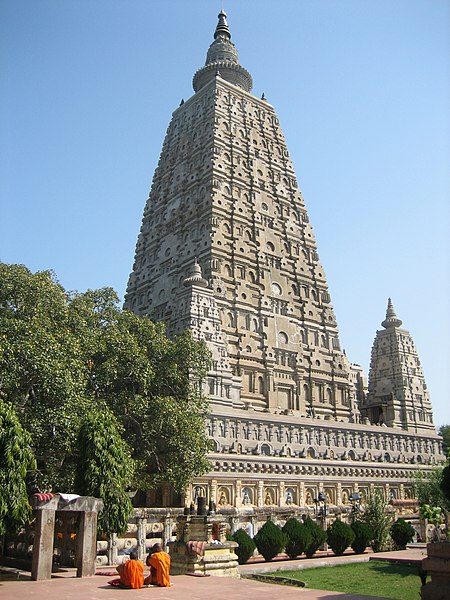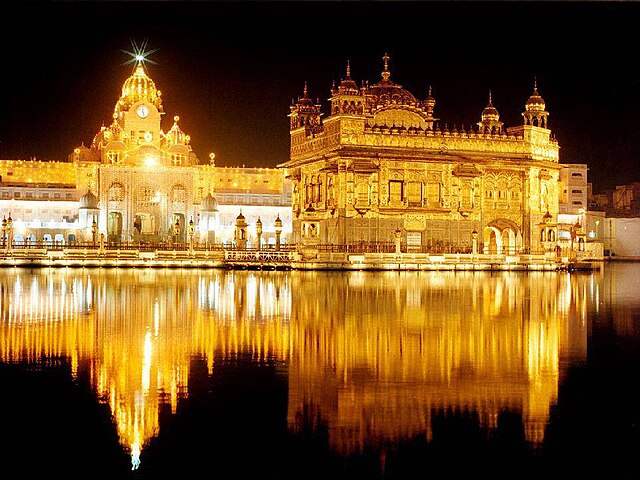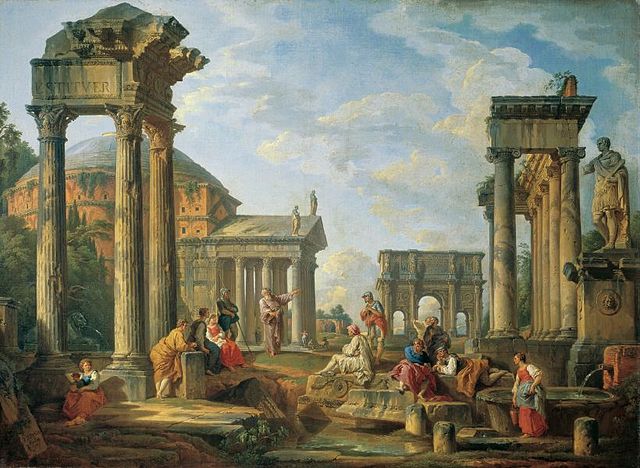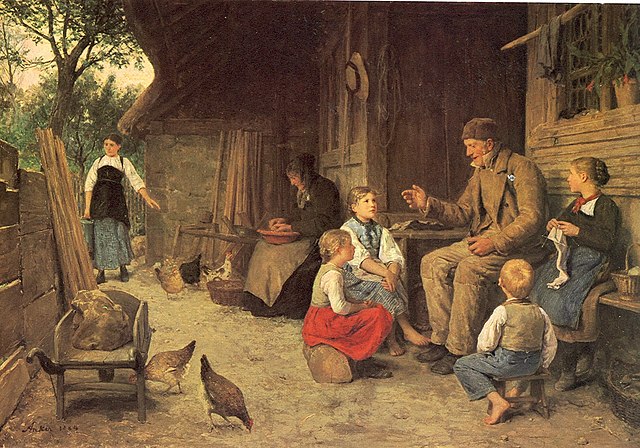Indian culture is the heritage of social norms and technologies that originated in or are associated with the ethno-linguistically diverse India, pertaining to the Indian subcontinent until 1947 and the Republic of India post-1947. The term also applies beyond India to countries and cultures whose histories are strongly connected to India by immigration, colonisation, or influence, particularly in South Asia and Southeast Asia. India's languages, religions, dance, music, architecture, food, and customs differ from place to place within the country.
Image: Khajuraho Kandariya Mahadeo Temple
Image: Palitana
Image: Mahabodhitemple
Image: Golden Temple India
Cultural heritage is the heritage of tangible and intangible heritage assets of a group or society that is inherited from past generations. Not all heritages of past generations are "heritage"; rather, heritage is a product of selection by society.
Roman ruins with a prophet, by Giovanni Pannini, 1751. The artistic cultural heritage of the Roman Empire served as a foundation for later Western culture, particularly via the Renaissance and Neoclassicism (as exemplified here).
The Grandfather tells a story, by Albert Anker, c. 1884.
Karl von Habsburg, on a Blue Shield International fact-finding mission in Libya
Plaque stating the designation of Carthage as a World Heritage Site.








